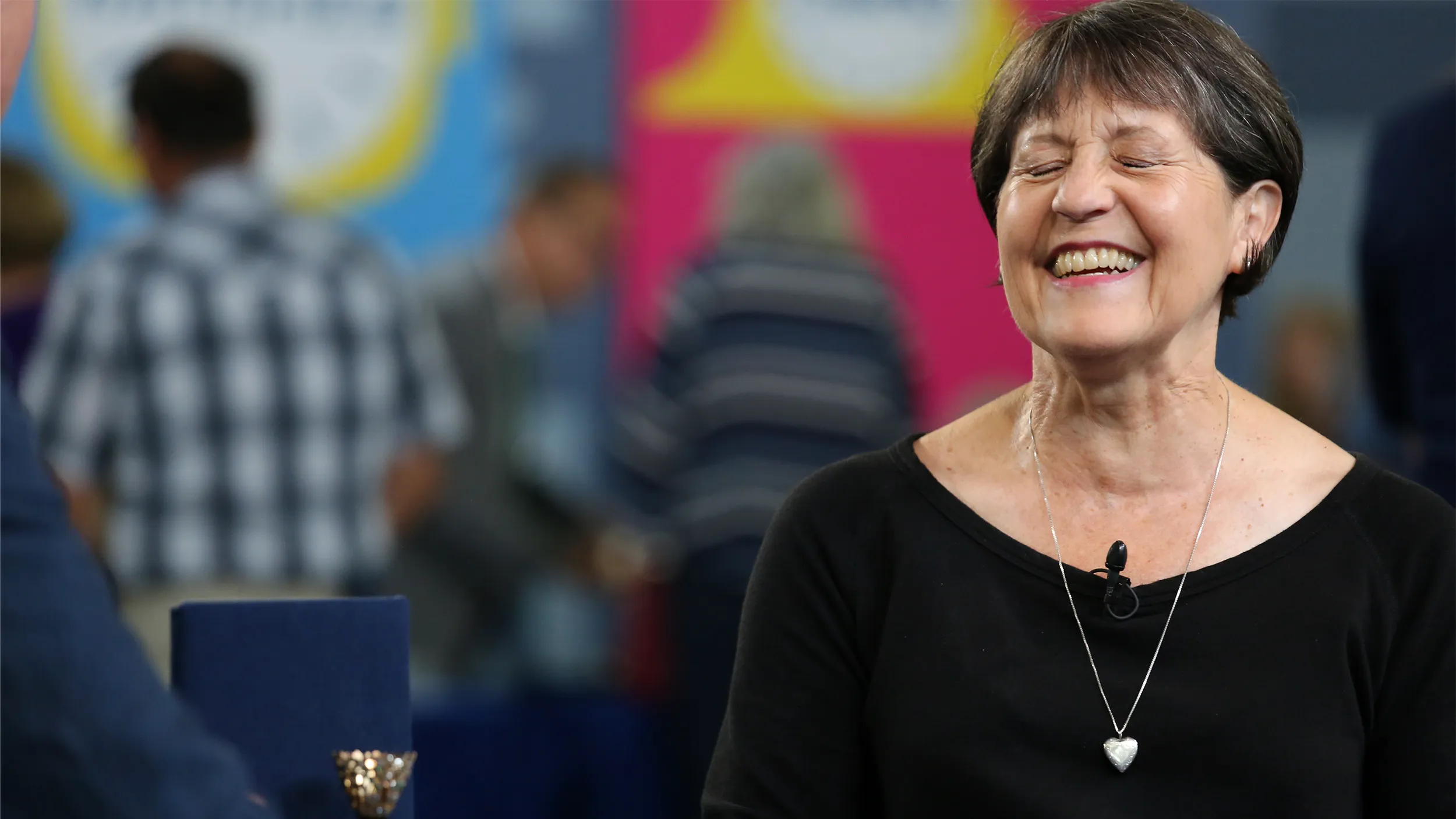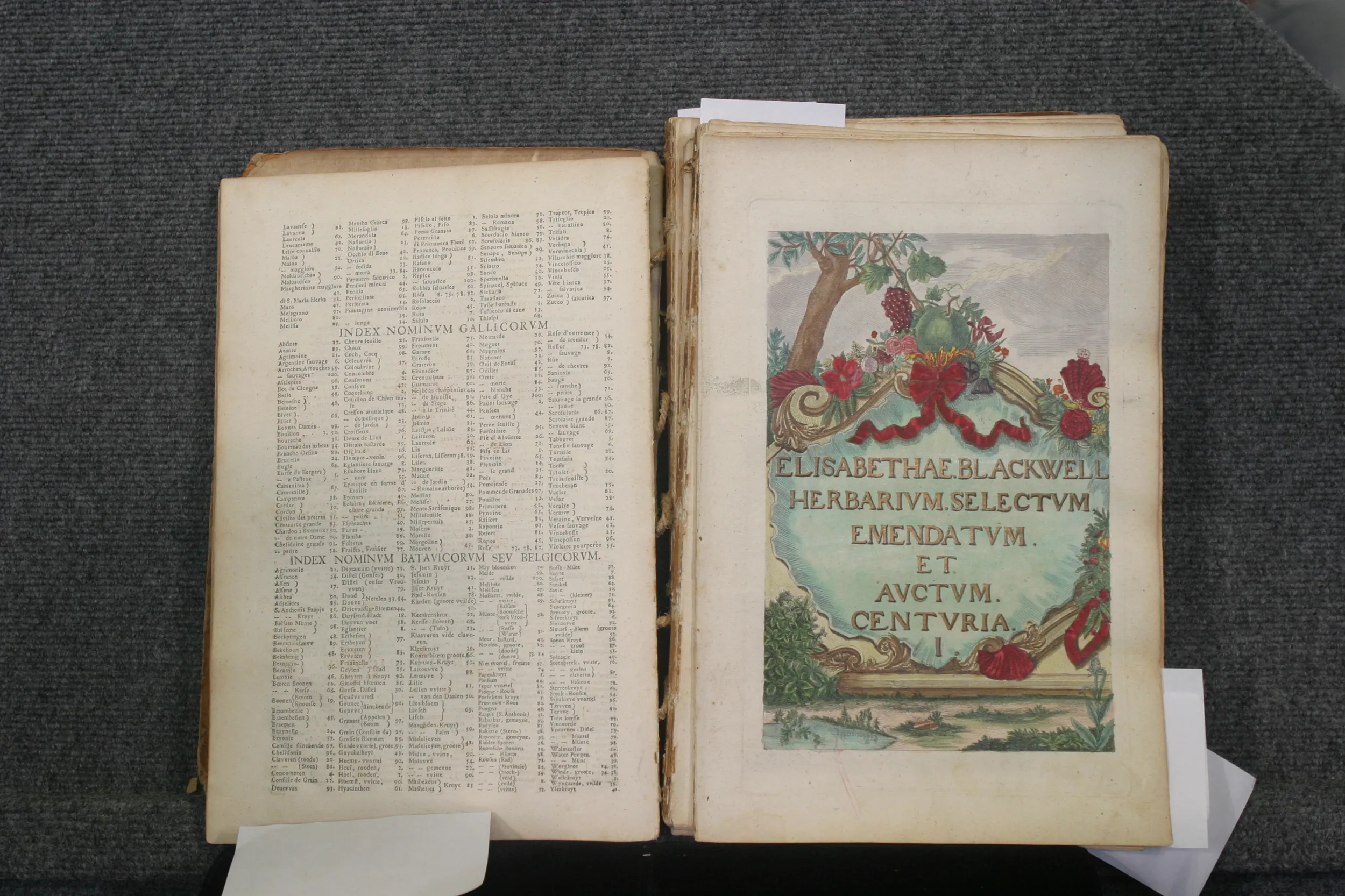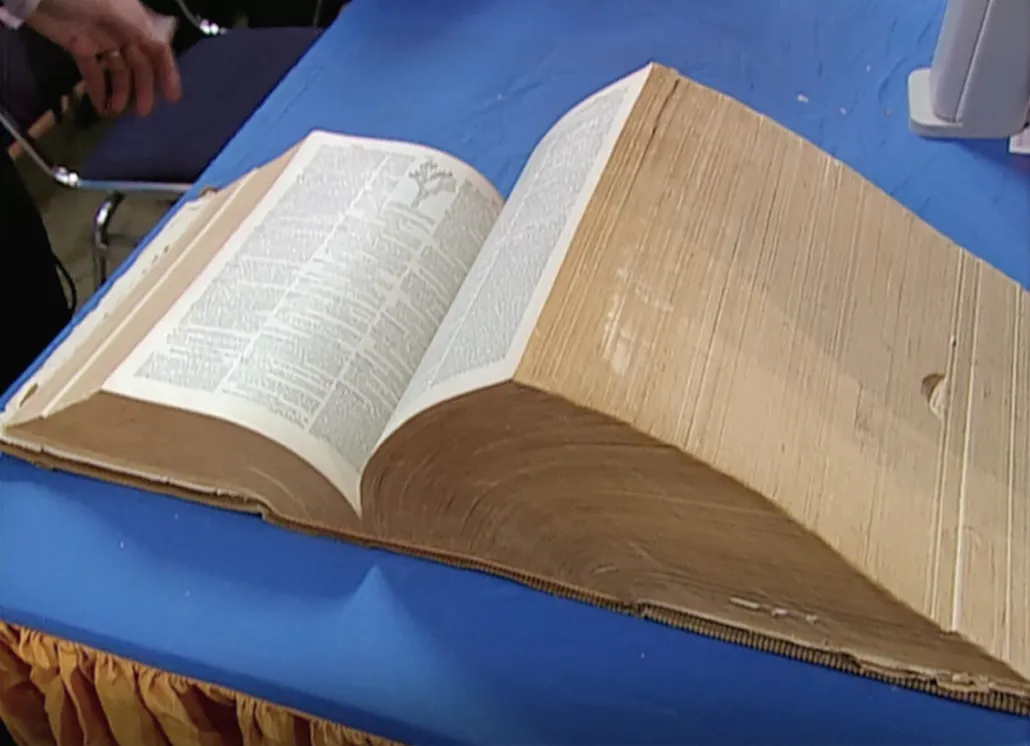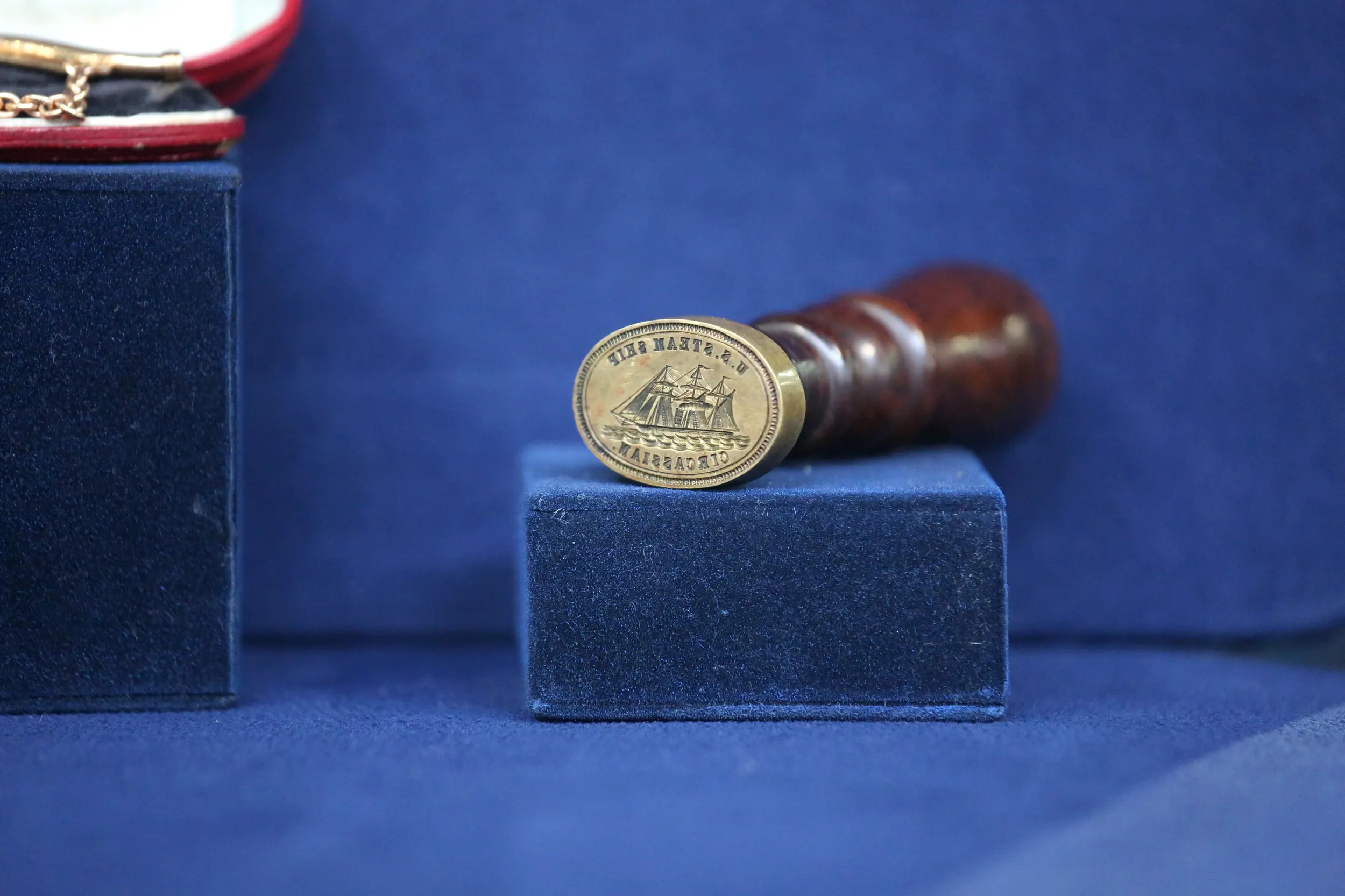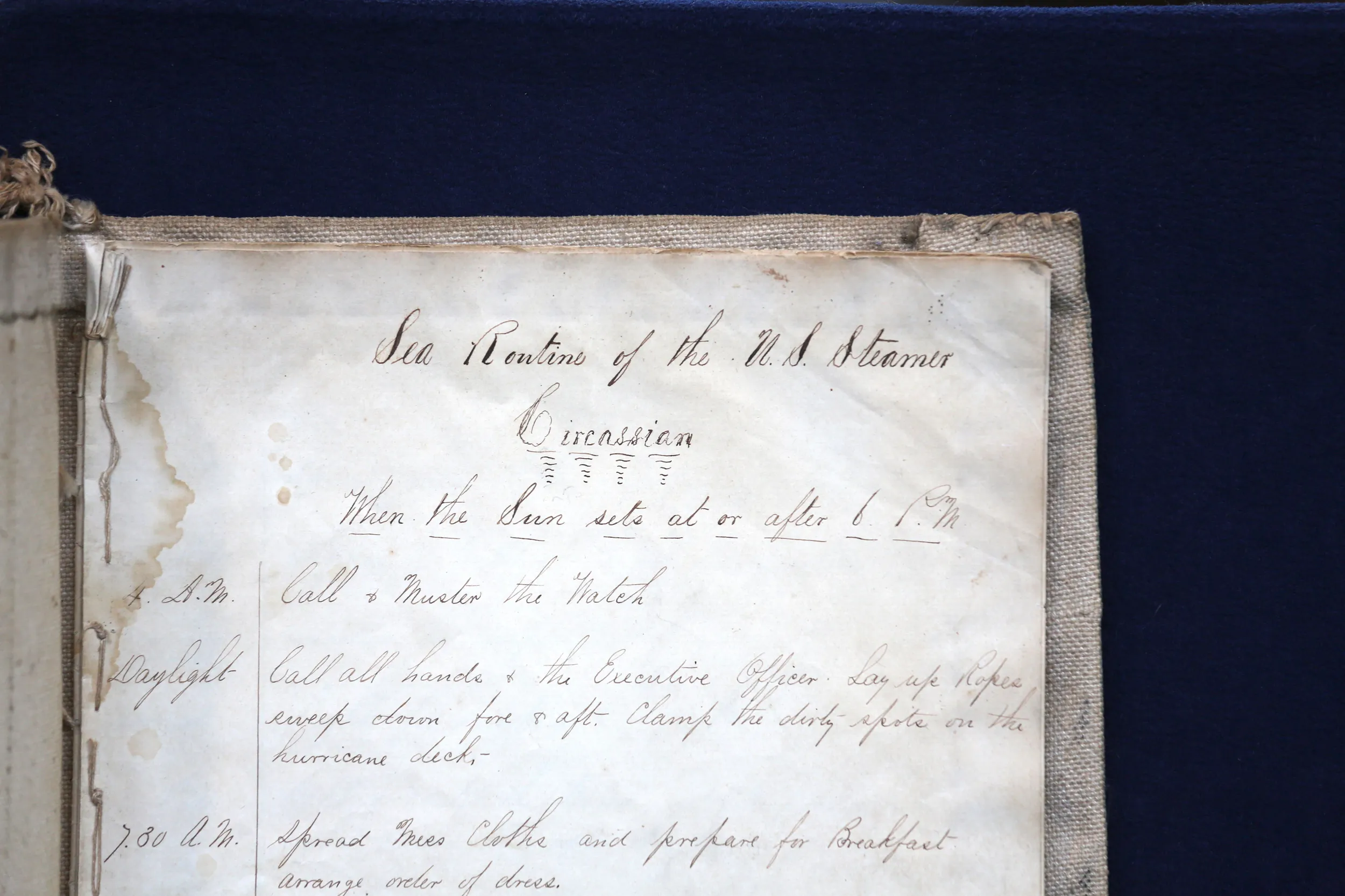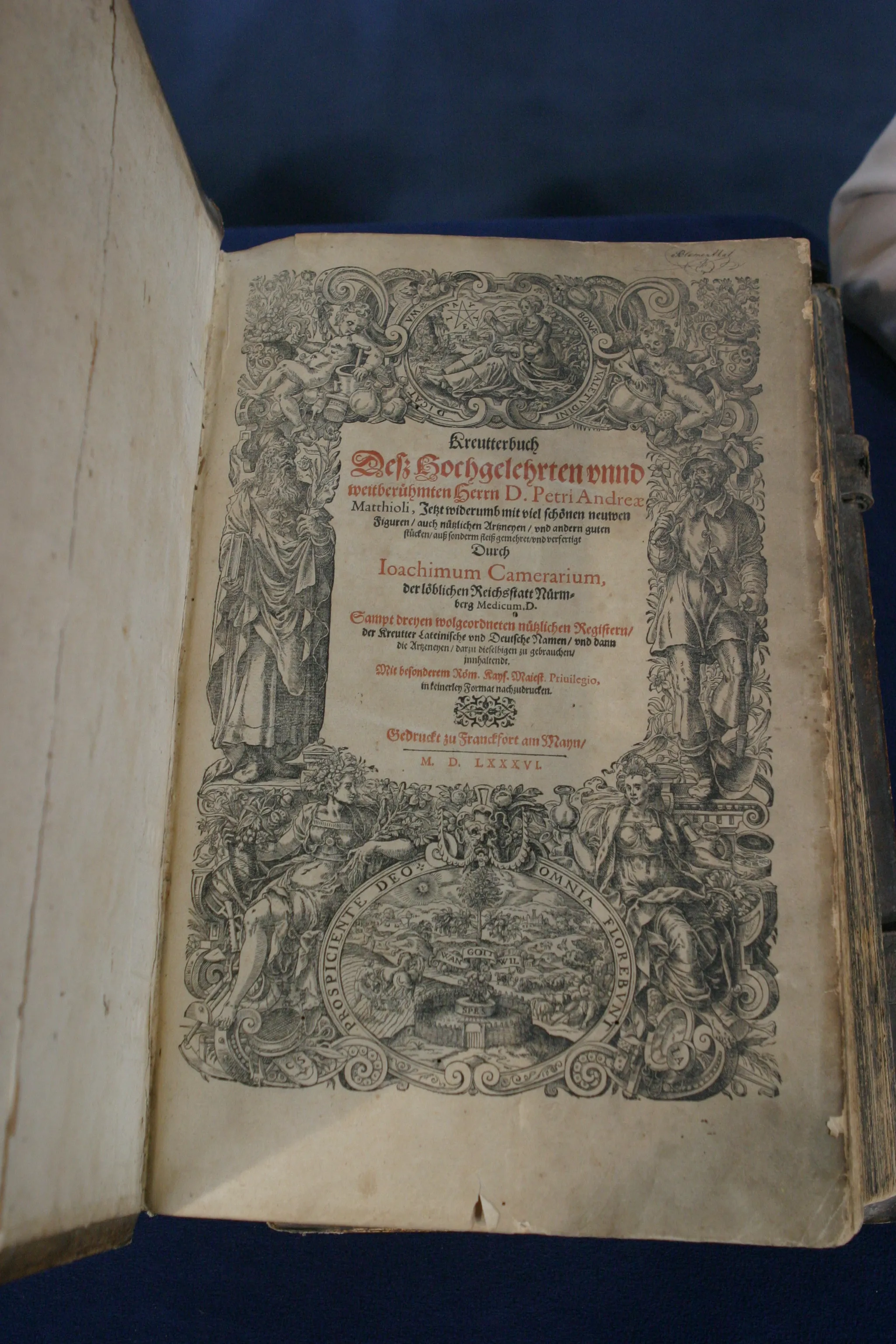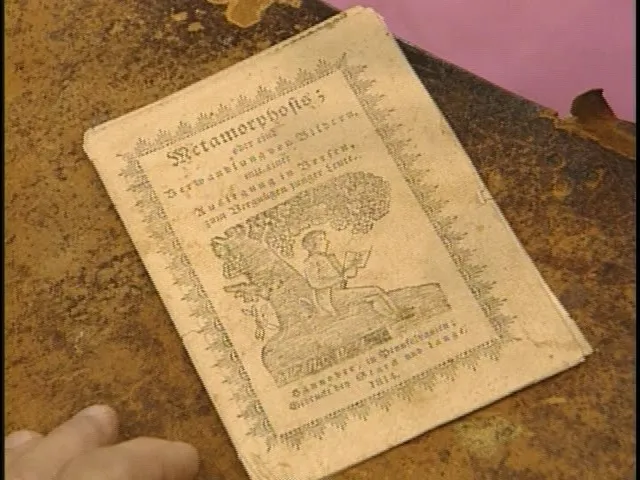GUEST: I brought in some Civil War memorabilia from my great-great-grandfather, William B. Eaton, who was a sea captain and a blockader who sailed with Admiral Farragut during the Civil War.
APPRAISER: And which ship did he serve on?
GUEST: He served on the Circassian, which is where some of this is from, but he also served on the Ethan Allen.
APPRAISER: What do you know about the Circassian?
GUEST: Well, I know-- I just found out from looking at the stamp that it's a sailing ship, but it also had a steam portion of it, too, which is pretty-- it was a hybrid, so...
APPRAISER: Which is pretty interesting, being in Oregon.
GUEST: I think so, yeah, yeah.
APPRAISER: Hybrids everywhere.
GUEST: Yeah.
APPRAISER: It's actually a really cool ship. When you research that ship, you find out that it was caught in the blockade itself, and it was captured by the U.S.S. Somerset on May 4, 1862. They took it to Key West, Florida, and they auctioned it off, and it was bought by the U.S. government and put into service.
GUEST: Oh.
APPRAISER: And your ancestor was the commander of the boat. It made nine different trips from New York and Boston down around Florida into the gulf.
GUEST: Right.
APPRAISER: And it would carry soldiers and provisions down to the gulf, and then would return with wounded, prisoners of war, cotton, and take it back up so they made the most of each trip. The last trip was April 11, 1865, it rolls into harbor, Which is interesting, because that's the same day that Lincoln gave his last public speech.
GUEST: Oh, wow.
APPRAISER: What we've got are a few wonderful pieces of history.
GUEST: Yeah.
APPRAISER: Closest to you, we have a seal. And what about this, what is this?
GUEST: This is a boatswain's whistle, and what we think is that it was given to him by one of his peers who was also one of the volunteer captains for the Union. We've heard that maybe he was the son of the owner of a newspaper in New York City, so, yeah, that's what I know.
APPRAISER: And it's interesting you say New York, because who sold it?
GUEST: Tiffany's.
APPRAISER: Famous Tiffany's.
GUEST: Right.
APPRAISER: It's a gold boatswain's whistle, but what's cool is the little chain that's on it. Our friends at the jewelry table said that it's probably a really fancy ornate watch fob.
GUEST: Right. Wow, yeah.
APPRAISER: And it's beautiful, it's solid gold, excellent condition, and up here, we have a picture of your ancestor.
GUEST: Right.
APPRAISER: And he's in his uniform, proud man.
GUEST: Right.
APPRAISER: This is what I really love, though.
GUEST: Oh, really?
APPRAISER: You think of all those ships that were supplying the troops all over the country, and there's very little known about them, because they were the hard-working guys that made it happen.
GUEST: Wow.
APPRAISER: But we don't know much about them. This gives us a glimpse inside what daily routine was on a ship. The cover is sail cloth.
GUEST: Oh, okay.
APPRAISER: And they utilized it for a lot of different purposes. Beautifully inscribed. But when we open it up, it's got everything those men were supposed to do for every day of the week.
GUEST: Right.
APPRAISER: And it gives a glimpse from everything from polishing the brass to smoke breaks.
GUEST: (laughs)
APPRAISER: It's something special, because they made a million muskets.
GUEST: Right.
APPRAISER: These, they're handmade, probably not many, if any, survive besides this one. It's just beautiful.
GUEST: Wow.
APPRAISER: Well, it's such a unique group, and it's a glimpse inside that area that we don't see. If it were my family's, I would insure this group for $10,000.
GUEST: Oh, wow! Great. Wow. Yeah. Well, we'll make sure we take good care of it.

